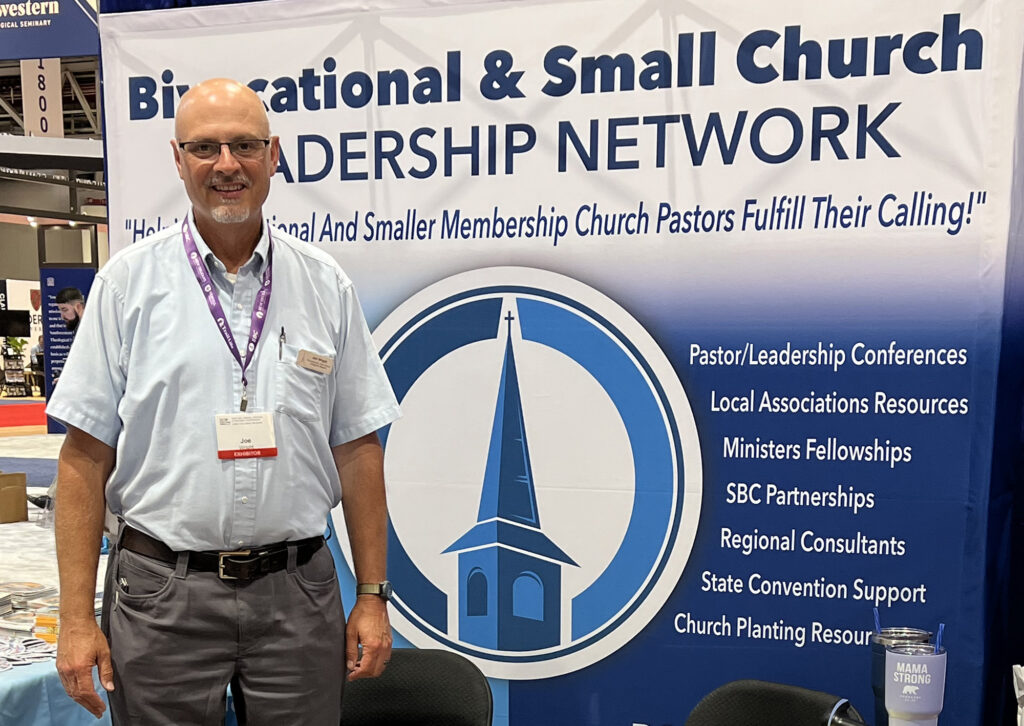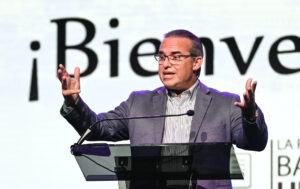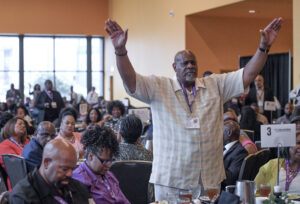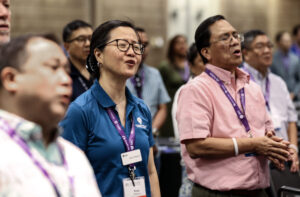
NASHVILLE (BP) — Now in its second year, a program for pastors of small churches is looking to expand not only as an academic setting, but one that grows relationships and establishes a place of encouragement.
The Small Church Academy launched a year ago through the Bivocational & Small Church Leadership Network (BSCLN) with three cohorts. Those cohorts – small groups of up to 10 members – increased to five in the spring. Eight are currently meeting.
“This is a small group gathering of friends who meet regularly to study important aspects of their ministries and Christian service, to share accountability and encouragement from like-minded, caring friends,” said Joe Wright, BSCLN executive director. “The goal of each module is to focus on personal discipleship, ministry potential and spiritual development.”
The group cites studies that a quarter of Southern Baptist churches average fewer than 24 people on Sunday mornings, with another 26 percent having fewer than 49 people. Approximately 66 percent of churches have 75 or fewer in attendance.
The BSCLN grew out of the Southern Baptist Bivocational Ministers Association (SBBMA), which was organized in 1980. The scope of its fellowship was broadened in 2006 to include leaders of smaller churches, not just those serving bivocationally. The SBBMA also adopted a measure to focus on churches with 125 or less in attendance, or 83 percent of all Southern Baptist churches.
The SBBMA voted in 2009 to change its name to the BSCLN “in order to focus and enlarge its ministry impact with pastors and church leadership.”
There is no cost to be part of a cohort, which uses study materials in addition to the Bible. Members commit to meet in person or over Zoom for an hour every two weeks. The first 30 minutes center around the required reading for that session. A 20-minute discussion follows over issues faced in members’ ministries. The final 10 minutes are devoted to prayer.
“Each participant provides their own computer to access the Zoom meeting, if necessary,” Wright said. “The group leader will provide necessary resources including a leaders’ study guide, Zoom license and strategic support.”
States hosting cohorts at this time include North Carolina, Kentucky, Arkansas, Mississippi and Tennessee. Most started last week, but those interested in cohorts still open or to sign up on a waiting list can do so at the Small Church Academy page through BSCLN.
The waiting list doesn’t automatically enlist someone in a new cohort, but will provide an alert through email and other means prior to one becoming available.
Partnerships with associational missionaries in several states such as Oklahoma, Mississippi, Kentucky, North Carolina and the Dakotas have opened up, said Wright. He would like to include others.
There is a strong sense of under-appreciation among bivocational and small church ministers, Wright said. That feeling comes denominationally as well as from the culture at large that is influenced by “a worldly-based definition for success.”
“I am Southern Baptist to the marrow of my bones and grew up the son of a bivocational pastor in the mountains of east Tennessee.,” said Wright, bivocational pastor at Three Rivers Fellowship in Waverly, Tenn. “I saw my dad struggle with the fact that he was not appreciated for all the work that he did. Yet, he had a level of spiritual common sense that was unparalleled by any minister.
“Only those who understand that kind of leadership ability will come to value it.”
The cohorts are for training in churches but will go beyond the walls.
“We’re actually building a disciple module and training pastors to carry that into their church,” he said. “They take the materials and do a cohort in their church. It starts out as leadership development, then goes into discipleship development. We pray that when we move into the third tier, it becomes evangelistic.”
















